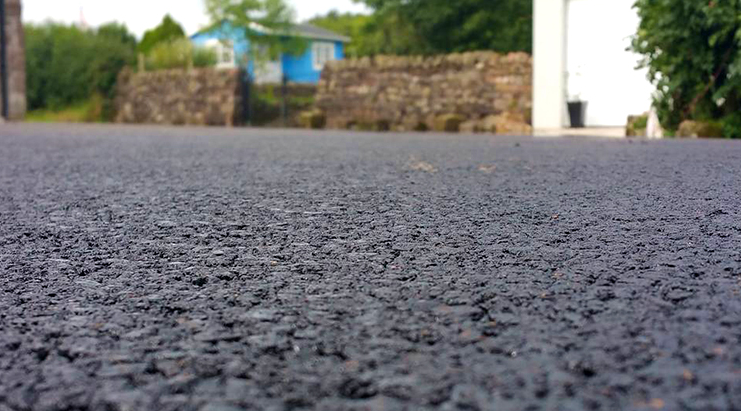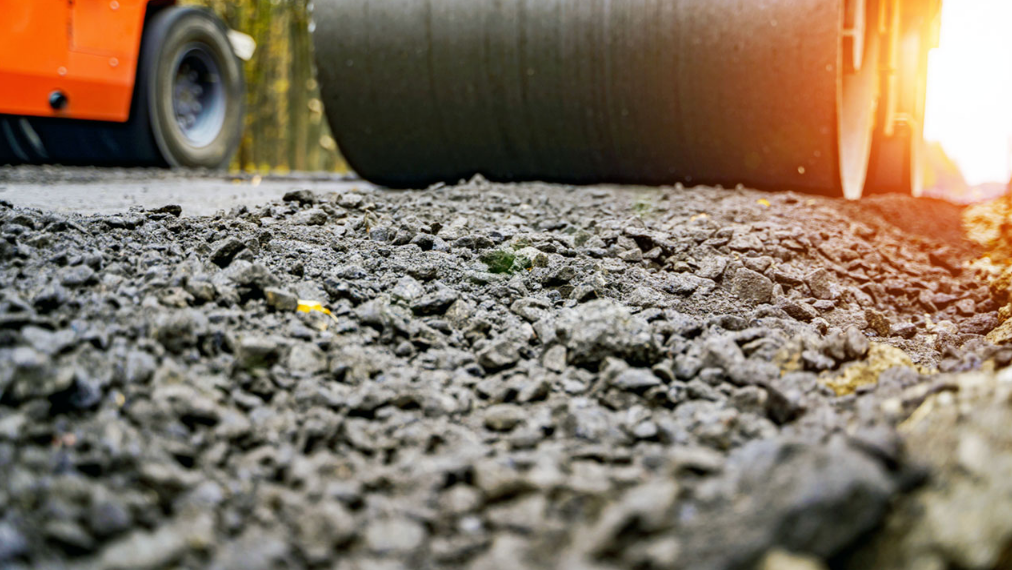Plastic waste has become one of the most pressing environmental challenges of our time, with millions of tons ending up in landfills and oceans each year. In response to this, innovative solutions are being developed to recycle and repurpose plastic waste. One of the most promising solutions is plastic asphalt, an eco-friendly paving material that integrates recycled plastics into traditional asphalt mixtures. This material not only helps reduce plastic pollution but also enhances the performance and durability of roads.

In this article, we will explore what plastic asphalt is, its benefits, applications, and how it is changing the way we think about sustainable infrastructure.
What is Plastic Asphalt?
Plastic asphalt is a type of asphalt that incorporates recycled plastic waste, such as plastic bottles, bags, and other discarded plastic items, into the asphalt mix. This innovation allows plastic to be diverted from landfills and given a new life in road construction. The plastic is typically shredded and mixed with asphalt to improve the material’s properties, such as flexibility, durability, and resistance to wear and tear.
The goal of plastic asphalt is to create a more sustainable alternative to traditional asphalt by recycling plastic waste, reducing the demand for new raw materials, and producing a longer-lasting and more resilient product. By adding plastic to the mix, the asphalt becomes stronger and more resistant to cracking, deformation, and environmental wear.
Key Characteristics of Plastic Asphalt
- Incorporation of Recycled Plastic Waste
- The primary feature of plastic asphalt is its use of recycled plastic materials, which are mixed with traditional asphalt. These plastics can come from a variety of sources, including bottles, bags, packaging materials, and even industrial plastic waste. This helps reduce the accumulation of plastic waste in landfills and oceans.
- Enhanced Durability
- Plastic asphalt offers improved durability compared to traditional asphalt. The addition of plastic helps the asphalt mix better withstand the stresses of traffic, weather, and environmental conditions. Roads constructed with plastic asphalt are more resistant to cracking, deformation, and rutting, leading to longer-lasting surfaces that require less frequent maintenance.
- Improved Flexibility
- The plastic in the mix increases the flexibility of the asphalt, allowing it to better cope with the movement of the ground and traffic loads. This flexibility reduces the risk of cracking and potholes, which are common issues with traditional asphalt.
- Environmental Benefits
- Plastic asphalt helps tackle the growing problem of plastic pollution. By using recycled plastic in the mix, plastic waste is diverted from landfills and given a second life in road construction. This process reduces the environmental impact of plastic production and disposal, helping to promote a circular economy.
- Cost-Effective
- In some cases, plastic asphalt can be more cost-effective than traditional asphalt. The use of recycled plastic can lower material costs, and the improved durability of the finished product reduces the need for frequent repairs and resurfacing.
Benefits of Plastic Asphalt
Plastic asphalt offers several environmental, economic, and practical advantages that make it an attractive option for road construction:
- Environmental Benefits
- Reduction of Plastic Waste: The incorporation of recycled plastics into asphalt helps reduce the amount of plastic waste that would otherwise end up in landfills or the ocean. This helps alleviate the global plastic pollution crisis and promotes sustainability.
- Lower Carbon Footprint: The use of recycled materials reduces the demand for new raw materials and lowers the carbon footprint associated with the production of asphalt. Additionally, the increased durability of plastic asphalt means fewer resources are required for maintenance and repairs.
- Promotion of Circular Economy: By repurposing plastic waste in the production of asphalt, plastic asphalt contributes to the concept of a circular economy, where materials are reused and recycled, reducing the need for virgin resources.
- Economic Benefits
- Cost Savings: Using recycled plastic in asphalt production can lower material costs, particularly if the plastic waste is sourced locally. The durability of plastic asphalt also leads to long-term savings by reducing the need for frequent repairs and resurfacing.
- Job Creation: The production of plastic asphalt and the collection of plastic waste for recycling can create new jobs in the recycling and construction sectors, helping to support local economies.
- Improved Road Quality
- Enhanced Performance: Roads made with plastic asphalt exhibit better performance than those constructed with traditional asphalt. The addition of plastic increases the material’s resistance to cracking, rutting, and wear, leading to smoother, safer, and more durable roads.
- Reduced Maintenance: The improved durability and flexibility of plastic asphalt mean that roads need fewer repairs and resurfacing over time, reducing the long-term costs of maintenance and ensuring better road quality for longer periods.
Applications of Plastic Asphalt

Plastic asphalt can be used in a wide range of infrastructure projects, from small residential streets to major highways. Some of the key applications of plastic asphalt include:
- Road Construction
- Plastic asphalt is ideal for use in road construction, particularly for highways, urban streets, and rural roads. The material’s enhanced durability and resistance to environmental factors make it well-suited for handling high traffic volumes and varying weather conditions.
- Pavement Rehabilitation and Maintenance
- Plastic asphalt can be used to repair and rehabilitate existing pavements. When used as a resurfacing material, plastic asphalt helps restore the integrity of damaged roads while improving their performance and longevity.
- Parking Lots and Airport Runways
- Plastic asphalt can also be used in specialized applications such as parking lots and airport runways. The material’s resistance to cracking and deformation makes it ideal for areas that experience heavy loads and frequent traffic, such as airports and commercial parking facilities.
- Urban Infrastructure
- In urban areas, plastic asphalt can be used for bike lanes, sidewalks, and other infrastructure projects. Its sustainability benefits and enhanced durability make it a good fit for city development projects focused on reducing environmental impact and promoting green initiatives.
Plastic Asphalt vs. Traditional Asphalt
Plastic asphalt offers several advantages over traditional asphalt, including improved performance, environmental benefits, and cost-effectiveness. Here’s a comparison between the two:
| Feature | Plastic Asphalt | Traditional Asphalt |
|---|---|---|
| Plastic Waste Reduction | Uses recycled plastic waste, helping reduce plastic pollution. | Does not incorporate recycled plastic, contributing to plastic waste. |
| Durability | Increased durability and resistance to cracking, rutting, and wear. | Less durable, requiring more frequent maintenance. |
| Environmental Impact | Lower carbon footprint and promotes a circular economy. | Higher carbon footprint due to the use of virgin materials. |
| Cost | Can be more cost-effective due to the use of recycled materials. | May be more expensive over time due to maintenance needs. |
| Flexibility | Increased flexibility, reducing cracking and potholes. | Less flexible, leading to potential cracking under stress. |
Plastic asphalt is an innovative and eco-friendly solution to the challenges posed by plastic pollution and the need for sustainable infrastructure. By incorporating recycled plastic waste into the asphalt mix, plastic asphalt not only helps reduce the environmental impact of plastic waste but also improves the performance and durability of roads.
With its ability to enhance road quality, reduce maintenance costs, and promote a circular economy, plastic asphalt is poised to become a key player in the future of road construction. As the world seeks more sustainable and cost-effective solutions to infrastructure challenges, plastic asphalt offers a promising way forward.






